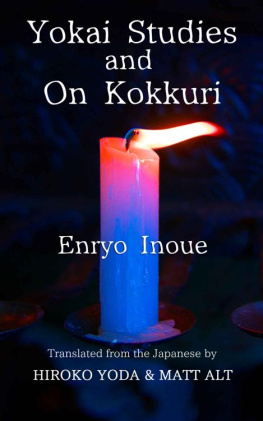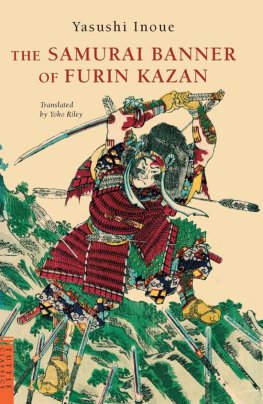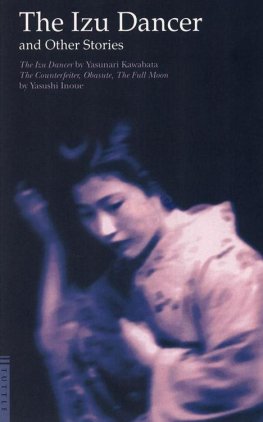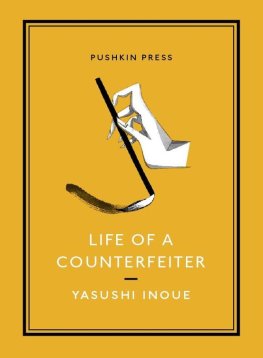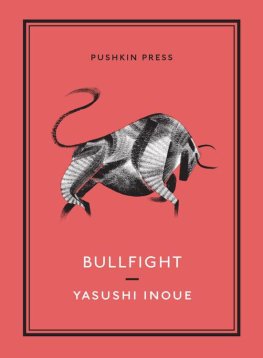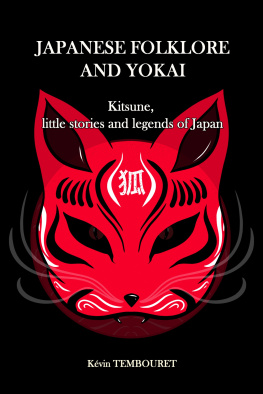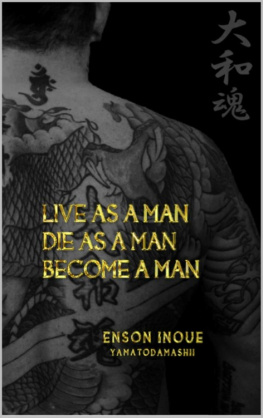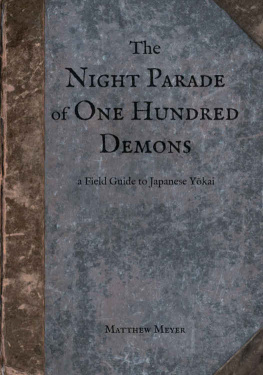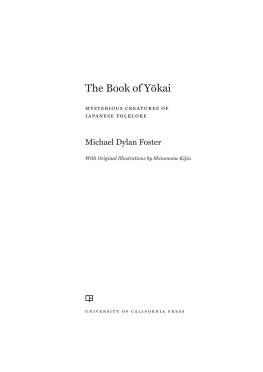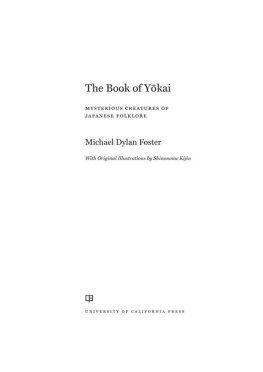Preface: Weird Science
by translators Hiroko Yoda & Matt Alt
This book contains two key essays by the Japanese scholar, educator, and philosopher Enryo Inoue (1858 - 1919). The first is the 1891 Introduction to Yokai Studies , which gives an overview to the field he founded to collect, analyze, and debunk legends and superstitions. The second is On the Subject of Kokkuri , his investigation of a Japanese fad derived from the then-popular American Spiritualist pastime of table-turning sances. Inoues prolific writings about his efforts to demystify supernatural beliefs widely held by Japanese of the era proved hugely influential in their home country, but only snippets have ever been translated into English. These two selections represent a quick overview of the key themes and approaches Inoue used.
Its tempting to paint Inoue as a crusader against folklore, but the reality is more nuanced. While he certainly made a point of debunking old wives tales and superstitions, he did so not out of churlishness but rather to get closer to true mysteries beyond human understanding. And whenever he confronted a legend or myth, he always made sure to document its particulars. The irony is that without these meticulous records, the details of a great many regional beliefs would have been lost to future generations.
In fact, the popularity of the word yokai itself is due mainly to Enryos work. He didnt coin it, but was the first to truly popularize it. However, he did not use the word in the precise sense that it is used today. In modern times it refers to weird monsters from Japanese folklore, things like kappa water imps, tengu mountain goblins, or the massive horned ogres known as oni. As you will see, Inoues use of yokai is closer to mystery than monster per se -- anything beyond understanding by rational human principles.
In his era, supporters hailed Inoue as a beacon of reason in the early days of Japans modernization. Later critics decried his life work as an example of the things their nation lost in the headlong rush to Westernize. And through a modern lens, his writing can seem sexist, elitist, and condescending. Theres truth in all of these observations, which is why its important to read Inoues work in the context of a man of his era, who lived through an incredibly tumultuous period of change for his society.
Raised by a family of Buddhist monks and ordained as a teen, Inoue spent his childhood steeped in the religions teachings and rituals. This background, combined with his own lifelong love of ghost stories and spooky tales, provided him with a unique springboard into examining the great mysteries of life and death. That said, he might well have lived out his life pondering them in Nagaoka, the small town in Niigata prefecture home to his family temple, had it not been for a startling historical development.
In 1853, when Inoue was just five, U.S. Naval Commodore Matthew Calbraith Perrys fleet of warships steamed into Edo bay, forcing Japan to open its borders to foreign trade and cultural exchange for the first time in more than two centuries. The treaties signed changed the course of Japanese history, and opened many new doors for young Japanese. At 16, Inoue enrolled in the Nagaoka School of Western Learning. After graduating, he moved to the capital to enroll inprestigious Imperial University (now Tokyo University), where he became its first student to declare a major in Western philosophy .
Inoue came of age during an audacious modernization plan set in motion by the Meiji Emperor, intended to catch Japan up with foreign powers after centuries of isolation. Part of this effort involved sending scholars out to learn more about the world. With his background in Buddhist philosophy and his specialty in Western studies, Inoue was uniquely positioned to take advantage of this swell of enthusiasm for foreign knowledge and know-how. In 1887 he founded Tetsugaku-kan (the Philosophical Academy), an institution that would eventually grow into modern day Toyo University, and began publishing a series of books introducing Western thinking to Japanese readers.
But for all of his fascination with foreign learning, Inoue was a devoted patriot, dedicated body and soul to building the moral foundation of young Japanese. To this end he launched a series of academic fields intended to fuse the best parts of Western and Eastern philosophy, incorporating aspects of psychology and religious studies. Today, the field for which he is best remembered is Yokai-gaku : Yokai Studies (sometimes translated as Mystery Studies.) His thoroughness in cataloging and critically analyzing weird phenomena earned him popular acclaim and the nickname Obake Hakase , Professor Spook.
Inoue aimed to use Western philosophical and scientific knowledge as a tool to sweep away superstition and usher Japanese into the modern era of science and reason. But later in his academic career, as nationalism soared in the wake of Japans triumph over Russia in the Russo-Japanese war of 1905, these same folk beliefs would be re-cast not as enemies of modernity, but rather a key part of what made Japanese unique. For example, Kunio Yanagita, founder of the field of Japanese folklore studies, famously expressed absolute and utter opposition towards Mr. Inoue. Even still, Yanagitas reliance on Inoues copious data in his own work reveals a grudging admiration for the mans efforts.
Inoues most well known endeavor in this vein was his expose of Kokkuri-san, a fortune-telling game derived from Western table-turning sances. It proved explosively popular after its introduction; at its peak from 1886 to 1887, when Inoue wrote his essay on the topic, the game had grown popular enough to attract even the attention of foreign observers. British Japanologist Basil Hall Chamberlain listed table turning as 1887s most fashionable craze in his 1890 book Things Japanese . Inoues essay not only explored the psychology behind the game, but was the first to research the roots of the trend, explaining that it had originated with foreign sailors in the port of Shimoda.
Inoues writings are a time capsule of the rural and urban legends that once captivated his nation. Although dated by modern standards, they are a fascinating window into a bygone era of Japanese popular culture.
Yokai Studies
Enryo Inoue, 1891
Introduction
I present yokai studies as a part of applied psychology. However, although I use the term studies here, it is not a standalone field. Yokai studies is simply my collection of yokai truths coupled with attempts at providing psychological explanations for them. It is simply a companion to the field of psychology, applying the theories of that field to reveal the truth. Eventually, yokai studies may grow into an independent academic field for researching the truth of yokai. As such, I feel that my work will be beneficial to researchers working in the field of philosophy as well as psychology. This is the genesis of my lectures on yokai studies.
Having said that, I havent managed to get to the bottom of the truth about yokai yet. Since I am still in the midst of my research, I cannot provide an explanation for every single one of these truths. But I have a few that I am actively working on, and also my articles from magazines, newspapers, and monographs. I gathered these, categorized them, adding several truths that I discovered after the fact, and dubbed the collection A Course in Yokai Studies. I ask the reader to consider it part of a psychology syllabus.
Chapter One: General Statement
In lecturing on yokai studies, one is first obliged to define what a yokai is. Here the definition of yokai, in the broadest sense, comprises all mysterious phenomena. In the universe we live in, throughout history and throughout the world Western and Eastern, there have been and continue to be things that cannot be explained with normal reason or analyzed using fundamental rules. They are called yokai, or mysteries. Yokai come in a variety of types, but generally fall into two broad categories.

